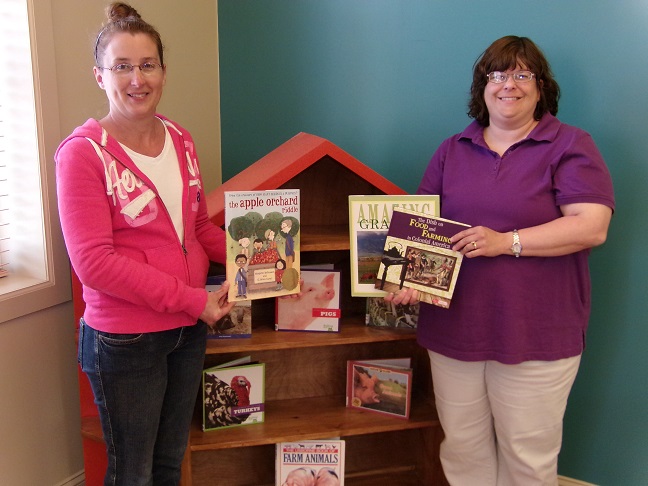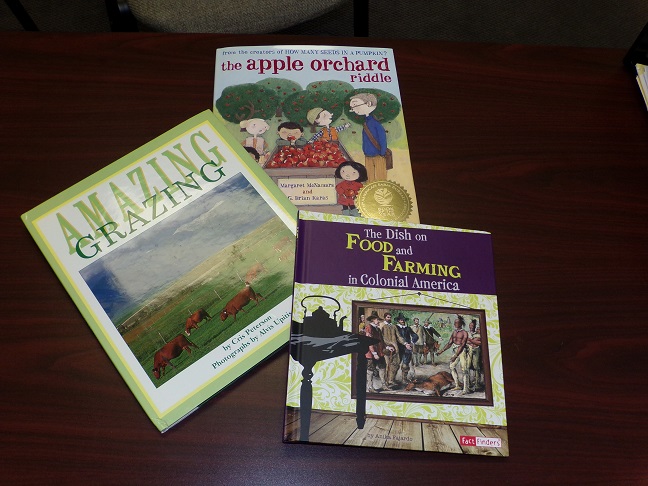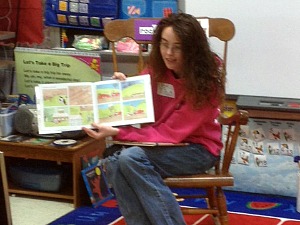2015 National Ag Day in Garrard County
 National Ag Day was celebrated by Garrard County Farm Bureau with free books.
National Ag Day was celebrated by Garrard County Farm Bureau with free books.
The Farm Bureau Women’s Committee went to Lancaster Elementary, Paint Lick Elementary, and Camp Dick Elementary Schools to read ag accurate books to young students. At the end of the reading, the books were donated to the school libraries. In addition, the Garrard County Public Library was the recipient of the same three books: The Dish on Food & Farming in Colonial America by Anika Fajardo; Amazing Grazing by Cris Peterson; and The Apple Orchard Riddle by Margaret McNamara.
At a time when most families shop at the grocery store for milk, eggs, and bread, it is our mission to help local children know where their food comes from. Basic lessons on growing grains and vegetables, milking dairy cows, and raising chickens have all been a part of the series that Farm Bureau brings to our youth.


KFB Spotlight
- Kentucky Farm Bureau Names 2025 Farmer of the Year Finalists
- July 8, 2025
-

-
The three finalists are: Mark Metcalfe of Hopkins County, Scott Porter of Mason County and Mike Wilson of Anderson County.
- Statement from KFB President Eddie Melton on Recently Passed Capital Gains Tax Relief
- July 7, 2025
-

-
Kentucky Farm Bureau President Eddie Melton commented today on the inclusion of capital gains tax relief to help keep agricultural land in production in the recently passed One Big Beautiful Bill Act.
- President's Column | I Want Our Farming Legacy to Continue for Generations
- July 3, 2025
-

-
Over the last 25 years, Kentucky agriculture has gone through an extraordinary transformation moving from a tobacco-dominant ag economy into one of the most diversified ag industries in the country.